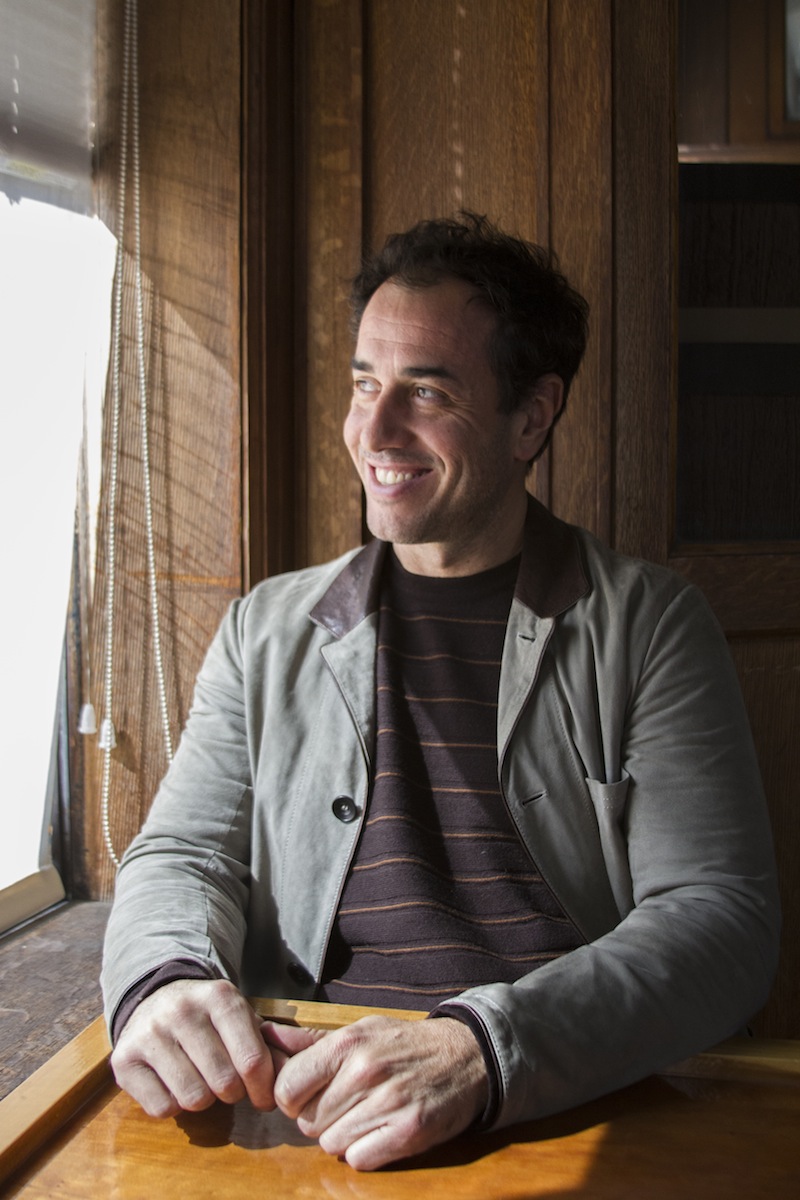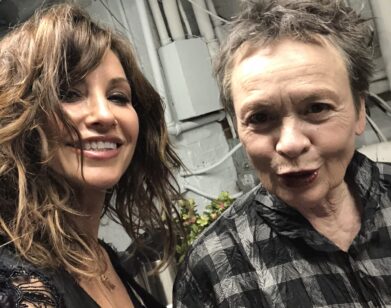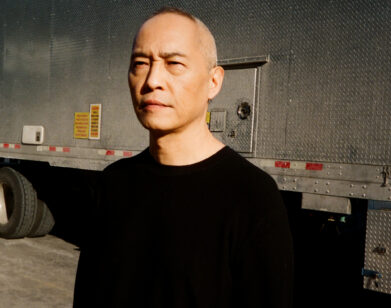Matteo Garrone’s Take on Reality
Director Matteo Garrone startled audiences in 2008 with Gomorrah, his unrelenting underworld drama that detailed the ecology of the infamous Neapolitan Camorra crime syndicate. Adapted from Roberto Saviano’s non-fiction bestseller, the film combined a sweeping multi-thread narrative and keen deployment of the Naples’ desolate urban landscapes to conjure an expansive and post-apocalyptic vision of a world corroded by corruption and violence. It won the director his first Grand Prix at Cannes, was blessed by Martin Scorsese upon its US release, and ultimately solidified Garrone’s international reputation as one of Italy’s most ambitious and fascinating filmmakers.
Now, Garrone has returned with an altogether different vision—but one that is no less expansive or ambitious. Reality is about the obsessive desire to seek another life somewhere else, even if it’s fiction. The film follows Luciano (expertly played by Aniello Areno), a charismatic Neapolitan fishmonger who is pushed by his family to try out for the reality TV show Big Brother, and becomes increasingly unhinged while awaiting the results of his audition.
With Reality, Garrone has crafted a dark fable, part satire and part existential meditation. The visual wit and playful tone of its first half, greatly enhanced by Alexandre Desplat’s original score, give way to something more sinister as Luciano’s journey leads him deeper into his own dark recesses. At times reminiscent of early Tim Burton, Garrone’s film is thoroughly rooted in Italy’s culture, channeling Pirandello, Italian Neorealism, and Fellini’s absurdism.
The film won the 45-year-old director his second Grand Prix at Cannes last year and opens in limited release in the United States today. Last week, Garrone sat down with us to talk about the origins of the film and the unusual story behind the film’s star.
PAUL DALLAS: Reality is quite a departure from Gomorrah. For one thing, it feels like a dark comedy.
MATTEO GARRONE: Dark comedy, yes. I think that there are similarities, though. Gomorrah is about crime system, and Reality is about the system of show business. In both films, the [main] character comes from the bottom of [the] system. The character in Gomorrah is the victim of the crime system, the slave in a way, who is from the bottom. The same is true of Reality, in a sense. We have characters that are the victims of the show business system. Both [films] are connected like black fairy tales. The style of Gomorrah is more [documentary-like], apparently, but the approach is always the same to me.
DALLAS: The style of Reality feels like a hybrid of realism and fantasy. Can you talk about the cinematography? You alternate between these sweeping crane shots and extended handheld scenes, like those in Gomorrah.
GARRONE: Yes. In Reality, there are a lot of long shots. If my reference in Gomorrah was Rossellini, probably my reference in Reality was more the early movies of Fellini and also movies of De Sica’s with [the actor] Eduardo de Filippo. In all my movies, I’m the cameraman. For me it’s very important, because, as I said, it’s very emotional. When I’m with the camera, I’m with [the actors]. It’s always very important that the actor is free to surprise himself, the other actors, and me. I always try to catch moments that are unique. It’s as if I’m the editor in that moment. I decide when I want to stay with one actor, when I want to go to the other. I wouldn’t say [it’s] improvisation, but it’s sort of a way of trying to give back the emotion that I feel. The [camera] movement when something happens is very fluid.
DALLAS: Given that the film is partially set in the world of reality television, it’s interesting that you cast all of the actors from the Italian stage. Aniello Areno, who plays Luciano, has a great face and gives a thoroughly convincing performance. Where did you find him?
GARRONE: I found him in this company of theater, in a prison. The company of theater where he works is La Forteza. The prison is in Tuscany, Volterra. The director of this company is Armando Punzo, and he’s really a great director. I used to go to the theater with my father, who was a critic of theater. We really loved this company. It was a very well known company. They’ve won prizes in Italy for their plays. I saw Aniello, and I know this is talent, his face. So we wanted to work together and I wanted to have him already in Gomorrah, but we didn’t get the permission. And so we tried again with Reality. It was very important to have a believable face [for the character] as a working-class man. I told Aniello he could be perfect. He has something that he gave to the character, something that is really pure and naïve.
DALLAS: Is it typical in Italy for prisons to have theater companies?
GARRONE: It happens, but it’s unusual that it is so good. It’s very, very good. There is also another [theater] company of prisoners in Italy that is also very well known. It’s the company that the Taviani brothers made the movie about [Caesar Must Die] and the director is Fabio Cavalli. That company also has a very high level of quality.
DALLAS: Why is Aniello in prison?
GARRONE: He went to jail when he was 22 years old. He was part of a gang in a war between clans in Naples. He paid for killing an enemy in another clan. He’s in prison for life, but maybe less. [In Italy, life in prison is 28 years.] When we worked together on the movie, it was already 20 years he was in jail. He started to work in theater 13 years ago. Now he’s completely another person.
DALLAS: Was he able to attend the film’s premiere at Cannes?
GARRONE: No, because he can’t go abroad.
DALLAS: Has starring in Reality changed his life? Is he now himself famous in Italy?
GARRONE: Yes, he’s famous, but I think it’s not important. What’s important is that his life really changed when he met Armando Punzo. He realized that acting was giving meaning to his life, and he loved to act. His life had true meaning. His life changed. I just give to him the chance to show his talent. I chose him because he was an actor, not because he was a prisoner. That’s very important.
DALLAS: I have to ask about the robots. In the film, Luciano has a scam going that involves getting his neighbors to order these fantastic things that look like pieces of Pop Art.
GARRONE: This was also based on a true story. It’s something [Aniello] actually did. But we didn’t want to get into trouble so we invented a new kitchen appliance robot for the film. It’s supposed to be fun.
DALLAS: Luciano’s obsession with getting on Big Brother made me think of the two boys in Gomorrah who are obsessed with Scarface and Tony Montana. Ciro Petrone, the skinny one, turns up as a bartender in Reality.
GARRONE: Before Gomorrah, he made a movie when he was 14. After Gomorrah, Ciro became very famous in Italy. He went to a reality show. He was set, you know? Because after Gomorrah, he could do some new movies, and he made Gomorrah because he dreams to be in a reality show. Now he’s changed. Ciro is amazing. He’s so talented. But he grew up in a society that promotes that kind of dreams [of celebrity]. He realized that now he can do something else. But he has a small part in the new movie of Susanne Bier [Love is All You Need] when it shot in Naples.
DALLAS: You use some unusual locations in this film and you show us a very different Naples than we saw in Gomorrah. La Sonrisa, the palace in the opening sequence, and the crumbling neighborhood in Naples where Luciano lives, have a surreal quality.
GARRONE: The palace is a hotel now and is used for weddings. It’s a place where people remake [their] weddings. I discovered it in 1988 when I made a documentary about a famous marriage photographer in Naples. So, I discovered this place, and I remembered it. Every time I was writing a new script, I wanted to put it in. And I succeeded, after a long time—after five movies! The difficulty of [Reality]—one of the many—was to find this subtle line between realism and a dimension of the fantastic. You had to find a [location for Luciano’s home] that could also be believable. We used a real villa of the 17th or 18th century in Naples, that is now in ruins. It’s where squatters live.
DALLAS: Luciano’s audition for Big Brother takes place at Cinecittà, and there’s a great scene as he’s entering the film studio. What’s Cinecittà like now? How was it to shoot there?
GARRONE: Well, mostly it’s just television that is produced there now, and this is where the real Big Brother was actually made, so we remained faithful to this aspect because we thought it was very important. When I was shooting the casting scene at Cinecittà [in which the camera tracks along a comically long line outside the studio], a lot of people thought it was a real casting [for a movie]. And others who passed by would insult me, because they thought that it was a real casting for Big Brother. They insulted me because they thought we were polluting, or trashing Cinecittà.
DALLAS: Tell me about the character of Enzo. He’s the former Big Brother contestant who is now famous and pulls some strings to get Luciano his audition. He floats through the film, sometimes literally, and his mantra is “Never give up.”
GARRONE: I would say that Reality is a movie about capitalism and fate, in a way. So this phrase is really emblematic. But at the same time, Enzo is a character that we invented in the screenplay because we needed a guy that gives [Luciano] a recommendation and gets him the audition. In the true story, which happened to Ricardo, the brother of my wife, it was me who gave the recommendation. He knew that I was in the show business and at the time, my studio in Rome was next to the place that they were casting Big Brother. I had no problem giving him the recommendation, because I knew the director of Big Brother very well. The director said okay, and [Ricardo] got a private audition [like Luciano does in the film]. When he came back to Naples, he was already a celebrity. For Reality, we had to find a character that could be me in a movie. So we said, “Okay, let’s invent Enzo.” But he had to be very, very close to Luciano, in a way, to make you understand why Luciano wants to succeed. Enzo looks like a normal guy, and if Enzo was able to do it, then so could Luciano.
DALLAS: Did your wife’s brother actually get on the show, or not?
GARRONE: No, no. But the movie is also about the fact that Luciano is pushed by his family, and the community to reach his dreams. So it’s a contagion. It’s society that does it, not just him.
REALITY IS OUT IN LIMITED RELEASE TODAY.







